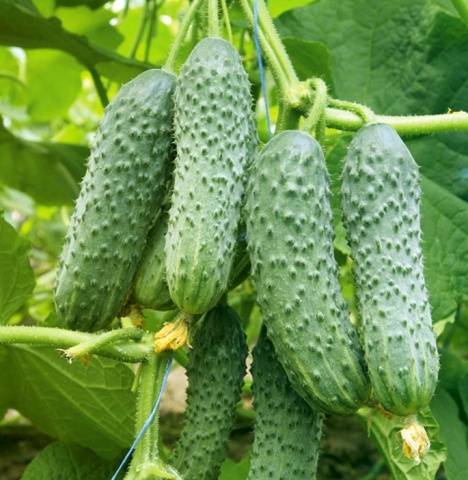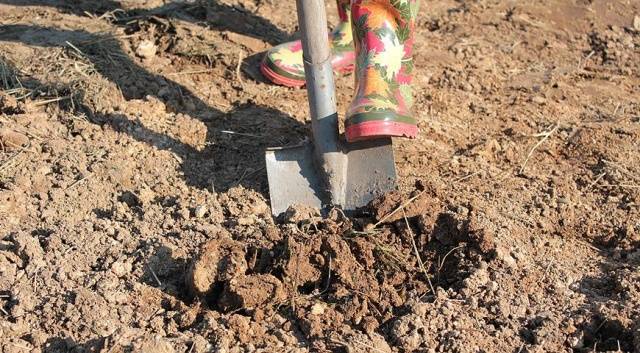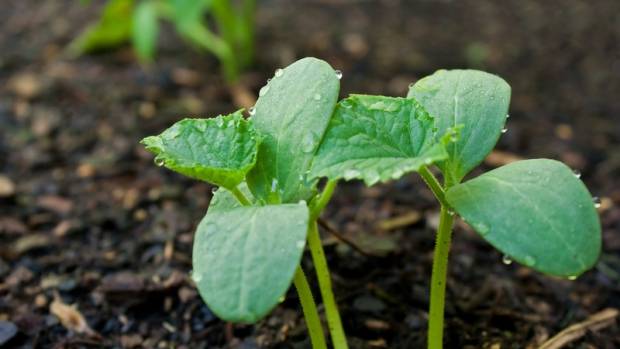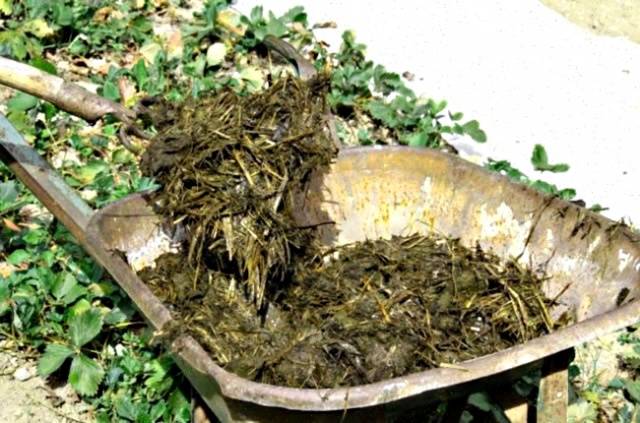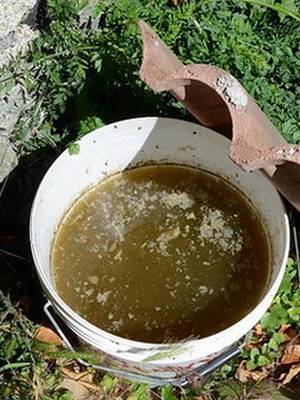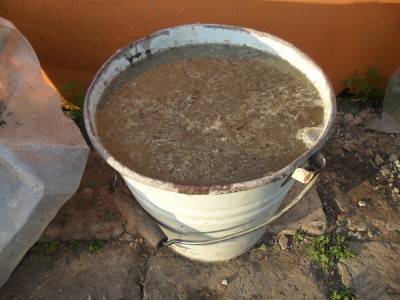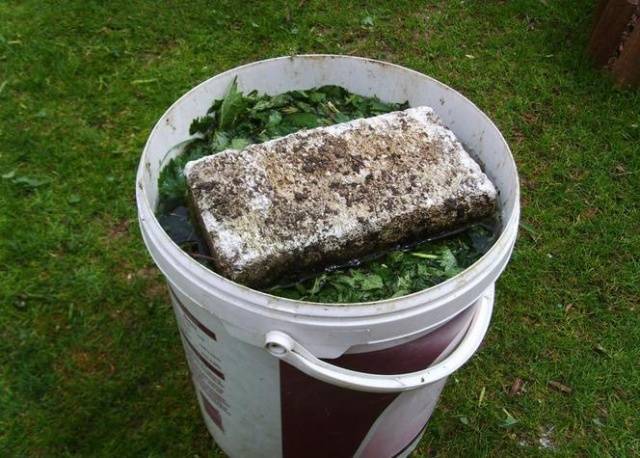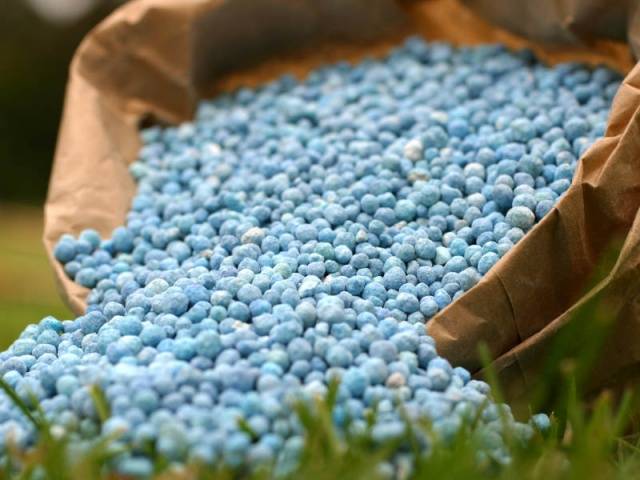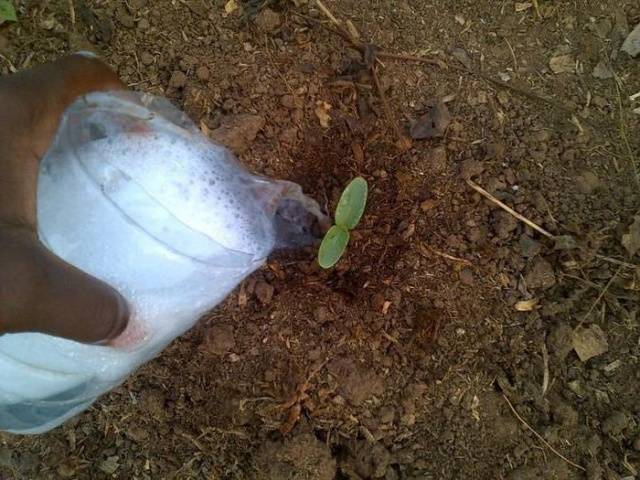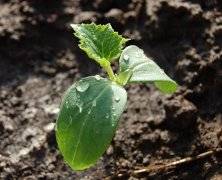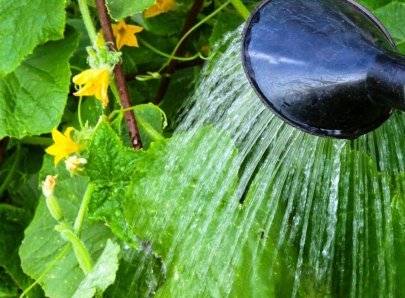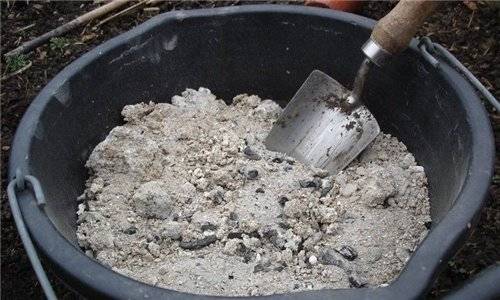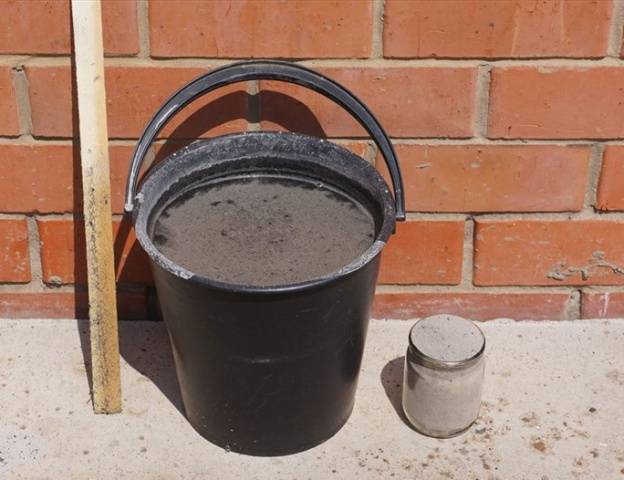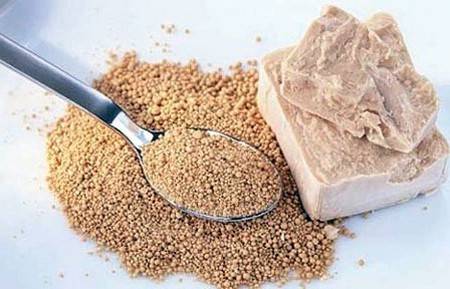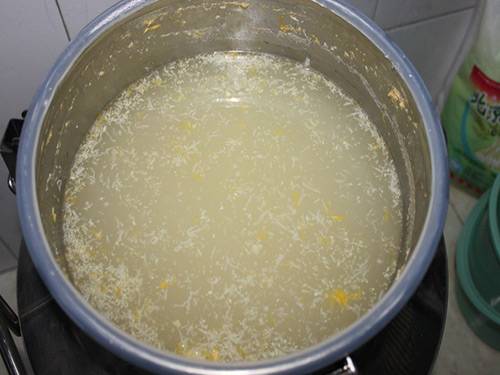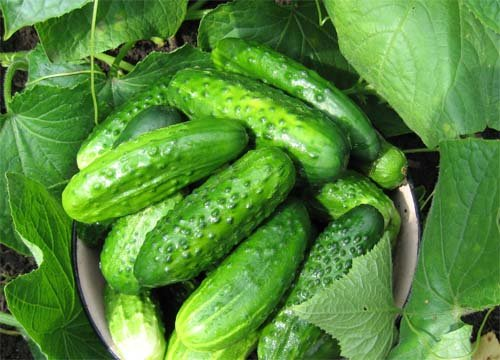Content
Planting seedlings of cucumbers in open ground begins in late spring and continues until mid-June. After planting, the plants find themselves in new conditions that differ significantly from the previous environment not only in temperature, but also in the composition of the soil. In order for young cucumbers to successfully take root and begin to bear fruit abundantly, the soil must be prepared even before planting seedlings by adding various fertilizers. During the growing season, feeding cucumbers in the open field will increase productivity and prolong the fruiting period culture.
Soil preparation
It is recommended to grow cucumbers in areas protected from the wind, well-lit by the sun. land... The precursors for cucumbers can be legumes, tomatoes, corn, root crops. You should not grow cucumbers from year to year in the same place or in the place where zucchini previously grew.
Prepare the soil for growing cucumbers in the fall. During deep digging of the soil, you need to add humus, compost or fresh manure, which will have time to partially decompose in winter. The rate of organic matter introduction in the autumn period for cucumbers in open soil areas is 5 kg / m2.
Organic fertilizers contain a significant amount of nitrogen, but they do not contain the required amount of other micronutrients. It is for this reason that phosphorus and potassium should be additionally added to the soil in the fall. It is better to choose superphosphate as a phosphate fertilizer. The rate of its introduction for cucumbers depends on the level of soil nutrition and can be 15-30 g / m2... Potassium can be added to the soil using potassium salt. The amount of fertilizer should be 10-25 g / m2.
It is worth noting that in the absence of organic matter, a mineral substitute can also be used, which will become a source of nitrogen. So, in the fall, ammonium nitrate and urea can be added to the soil where cucumbers will subsequently grow.
Feeding cucumbers
It is possible to plant cucumbers in open ground in spring only when the soil at a depth of 10 cm is warmed up by more than 120C. Before planting, the prepared soil must be loosened, ridges and holes must be formed on it. You do not need to add any additional nutrients during the planting of cucumbers in open ground.
After planting, the cucumber seedlings stop their growth to adapt to new conditions. At this time, plants consume previously laid phosphate and potash fertilizers... They allow the plants to take root better.
A week after planting, the cucumbers should intensify their growth, and if this does not happen, then the first feeding is necessary. To fertilize cucumbers, you can prepare complex mineral formulations or use organic fertilizing. Also, some foliar dressing and fertilizers made from improvised means according to an unconventional method show high efficiency.
Organic feed
Organic fertilizers for cucumbers in the open field are more often used by gardeners who have their own farmstead. In this case, organic matter is affordable, highly efficient and environmentally friendly. Such fertilizers are great for feeding cucumbers, since they contain a large amount of nitrogen necessary for their growth.
Mullein infusion
The best known organic fertilizer for cucumbers is infusion mullein... It contains in its composition not only a large amount of decomposed nitrogen, but also phosphorus, potassium, calcium, zinc, magnesium and other trace elements necessary for plants. Use the mullein for the first (immediately after rooting) and subsequent feeding of cucumbers.
It is not difficult to prepare mullein infusion. For this, 1 part of cow dung and 5 parts of water are placed in a container. After stirring, the solution is insisted for two weeks. During this time, the nitrogen in the fresh manure overheats and is harmless to the culture.
You can make the mullein infusion a complex fertilizer, which will contain a large amount of potassium and phosphorus, by adding wood ash. For 1 bucket of concentrated infusion, add a glass of ash.
For feeding cucumbers in open areas of land, the concentrated mullein infusion must be diluted with water in a ratio of 1:10. Fertilizing cucumbers is recommended in the evening, after sunset at the root.
Bird droppings
Poultry manure, in comparison with cattle manure, contains an increased amount of all trace elements, including nitrogen, which can burn cucumbers. That is why droppings are never used fresh, they must be prepared.
You can feed the cucumbers dry chicken droppings... To do this, it must be left in the fresh air to dry for a while, and then used for embedding in the ground. Fresh poultry droppings can be used in liquid fertilizer by mixing it with water at a ratio of 1:20. The resulting solution is insisted for at least 10 days.
Watering cucumbers with infusion of bird droppings is recommended during the mass formation of ovaries, since such feeding will significantly reduce the number of barren flowers. Before use, the concentrated litter infusion is diluted with water until the color of the liquid becomes tea-like.
In the case when the gardener does not keep chickens and other poultry in his backyard, you can purchase ready-made feed based on chicken manure. An example of the use of such dressings and the farmer's feedback on fertilization can be seen in the video:
Infusion of herbs
Herbal tinctures can be a complete fertilizer for cucumbers. You can prepare a tincture from nettle or weeds. The greens should be crushed and filled with water in a ratio by weight of 1: 2. You need to infuse the herb for several days. At this time, the processes of overheating and fermentation take place, as evidenced by the formation of foam. The finished herbal infusion, before watering the cucumbers, is diluted with water until a light brown solution is obtained.
On the basis of herbal infusion, you can make a complex fertilizer. To do this, mullein and wood ash should be included in the solution.
Thus, using organic fertilizers, it is possible to completely restore the composition of the soil, saturate the cucumbers in sufficient quantities with nitrogen and other necessary substances and, as a result, get a good harvest of ecologically clean, tasty cucumbers.
Mineral complexes
Fertilizing cucumbers after planting in the ground until the end of fruiting can be carried out using mineral fertilizers. They can be prepared independently by mixing several components, or purchased ready-made.
Among the ready-made mineral fertilizers for growing cucumbers on unprotected soils, one should highlight "Zeovit Cucumbers", "Topers", "Fertika-Lux", "Agricola", "Bio-Master" and some others. All these fertilizers contain the optimal amount of various microelements for feeding cucumbers at different stages of cultivation.
Mineral complexes for feeding cucumbers you can prepare it yourself by mixing several different substances.For example, you can get a good fertilizer for cucumbers by combining 20 g urea and 10 g of superphosphate. Additionally, potassium sulfate in the amount of 7 g should be added to the mixture. In the preparation of top dressing, urea can be replaced with ammonium nitrate in the amount of 7 g. The mixture of substances is dissolved in 10 liters of water and used for watering plants at the root.
During the period of mass formation of ovaries and active growth of fruits, it is recommended to feed the cucumbers with a urea solution. To do this, it is recommended to add 50 g of the substance to a bucket of water.
Ingestion of substances on cucumber leaves can damage them. Before feeding the plant, it is recommended to water it abundantly with clean water.
Foliar dressing
Caring for cucumbers should consist not only in applying fertilizers at the root, but also using foliar dressing. The surface of the cucumber leaf is able to transmit nutrients and synthesize them to improve all life processes. This type of feeding is not the main one. It must be used as an addition to root dressing. It is recommended to spray cucumber leaves with nutrient solutions every 2 weeks.
Each farmer plans the mode of spraying cucumbers with nutrients independently, carrying out top dressing in the period between the introduction of basic fertilizers. In this case, extraordinary spraying should be carried out after prolonged cold snaps, since under such conditions the roots of plants cease to absorb substances from the soil. Also, the use of foliar dressing is effective for symptoms of micronutrient starvation.
For foliar feeding of cucumbers, organic and mineral fertilizers can be used, which are similar in composition to root feeding, however, their concentration should be reduced by 2 times.
A farmer can combine minerals on his own using solutions of trace elements prepared in certain concentrations. So, it is recommended to dilute urea based on the calculation of 2 tablespoons per bucket of water. Superphosphate and potassium sulfate are added to the same volume in the amount of 200 and 100 g, respectively. Ammonium nitrate for foliar feeding of cucumbers, 20 g is enough per bucket of water, potassium chloride should be added no more than 50 g.
You should not mix all fertilizers together with each feeding, since during a certain growing season cucumbers only need some substances. For example, to stimulate the growth of young plants, you should use substances containing nitrogen - urea or ammonium nitrate. During the formation of ovaries, the culture needs potassium and phosphorus.
Copper sulfate is often used during the flowering of cucumbers. It allows you to reduce the number of barren flowers and increase the yield of vegetables. For spraying, it is diluted in water at the rate of 2 g per 10 liters of water.
It is necessary to use all types of foliar dressing on open plots in the evening or early in the morning in the absence of direct sunlight and wind. This will allow the fertilizer not to evaporate, but to be absorbed into the surface of the plant's leaf plate.
Unconventional fertilizers
In addition to traditional mineral, organic fertilizers, some farmers use non-standard methods of plant nutrition, based on the use of substances and products that can be found at home.
Wood ash
Ash can be a source of potassium, magnesium, calcium and phosphorus for normal growth and abundant fruiting of cucumbers. Ash is used in spring when sowing seeds for seedlings, adding a substance to the soil, then in the process of caring for it and after young plants are planted in the ground.So, during the growing season, cucumbers should be fertilized ash 5-6 times:
- during the release of the second leaflet;
- with the onset of flowering;
- in the process of fruit formation every 2 weeks.
Wood ash can be added in various ways, for example, by adding to an already prepared organic fertilizer. It does not contain nitrogen, so such a complex will not be able to burn plants, but the ash will add the missing mineral element to the organic solution.
The use of dry ash implies its incorporation into the upper layers of the earth. After such an introduction, the soil must be watered. Liquid infusion is also very popular with gardeners. Prepare it at the rate of: 2 tablespoons of ash per 1 liter of water. After stirring, the solution is infused for a week. After completing the preparation, the solution is diluted with clean water in a ratio of 1:10 and used for watering plants at the root.
You can see the result of the already carried out feeding of cucumbers with ash and hear the farmer's comments on the video:
Yeast
You can speed up the process of root formation and increase the yield of cucumbers when using yeast... They contain a complex of minerals, vitamins and other substances that have a beneficial effect on the development of plants. Yeast feeding makes bacteria existing in the soil work, thereby saturating the soil with oxygen and nitrogen.
Yeast feeding cucumbers in the ground should be carried out no more than 3 times during the entire growing season. Watering with fertilizer is carried out when the soil is sufficiently warmed up, since the vital activity of beneficial fungi will only be active in this case. You can prepare a yeast plant feed according to one of the following recipes:
- Dissolve 10 g of dry, granular yeast in a bucket of warm water. To improve fermentation, you can add 2 tablespoons of sugar or jam to the mixture. Insist the resulting solution for several hours, then dilute by adding 50 liters of warm clean water.
- Fresh yeast is dissolved in warm water in a ratio by weight of 1: 5. For fermentation, the mixture is kept warm for 3-4 hours, after which it is diluted 1:10 and used for watering at the root.
Yeast dressing can be used in combination with organic or mineral fertilizers. Top dressing is popular, prepared by adding yeast and ash to the herbal infusion.
Honey dressing
Honey dressing can be carried out during the flowering period of cucumbers. It will attract pollinating insects. To carry it out, you need to dissolve 1 spoonful of honey in a liter of warm water. After cooling, the cucumber leaves are sprayed with the solution. Such a "tricky" measure will increase the crop yield even in the presence of unfavorable, cloudy summer weather.
Let's summarize
Thus, when planting cucumbers in open ground, it is necessary to take care not only of basic care, including weeding and watering of plants, but also of dressing, which will allow the plants to develop safely and bear fruit abundantly for a long period of time. You can use various types of fertilizers and their combinations, but at the same time it is worth remembering that in the spring cucumbers are especially in need of nitrogen, during the period of active fruiting, the culture is demanding on potassium, phosphorus and calcium.
Throughout the growing season, it is necessary to carry out 3-4 basic dressings. At the same time, spraying with micronutrients and the introduction of ash, chalk dressings can be carried out repeatedly with an interval of 1-2 weeks. Using various dressings and methods of their introduction, you can get a wonderful, bountiful harvest of delicious cucumbers, even when grown in the most scanty soil.
